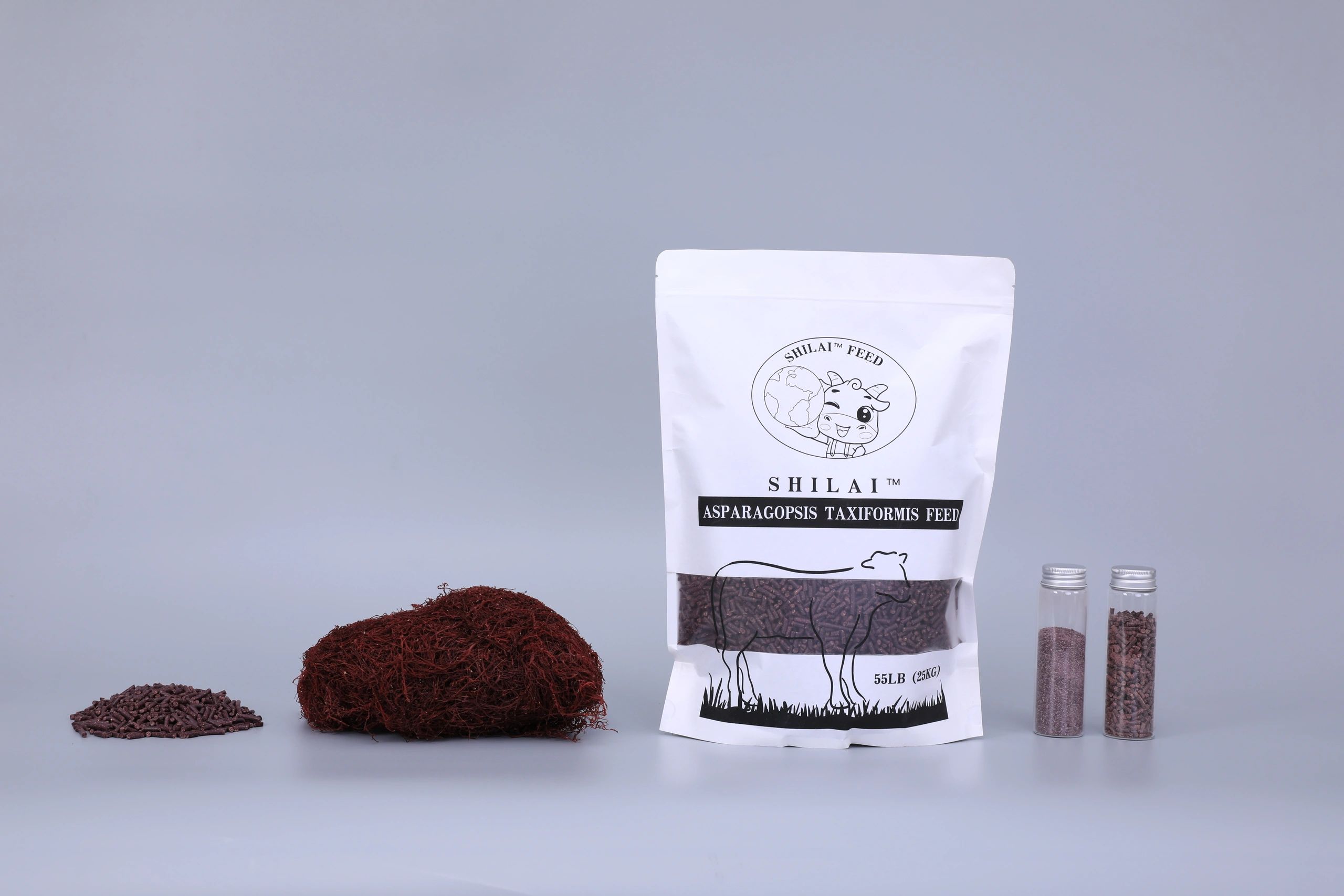The global agricultural sector is a major source of greenhouse gas emissions, especially from livestock farming.
With a higher global warming potential than CO2, methane represents a particularly damaging contributor to climate change.
Scientists are exploring the use of Asparagopsis taxiformis, a red algae species, as a novel approach to mitigate livestock methane.
The seaweed’s chemical constituent limits the activity of methane-producing microbes in the rumen, decreasing emissions.
Blending Asparagopsis taxiformis into animal feeds has delivered encouraging trial data that point toward meaningful reductions in livestock methane.
- The seaweed further supplies a set of advantageous outcomes that extend past methane mitigation.
- Elevated animal welfare and condition
- Creation of new jobs and revenue streams in the seaweed industry
Ongoing research and development are warranted, yet Asparagopsis taxiformis already shows compelling potential to lower agricultural emissions.
Realizing the Opportunity of Asparagopsis taxiformis Powder in Animal Nutrition
Using Asparagopsis taxiformis in powdered concentrate form could markedly improve feed solutions for livestock.
Its profile of nutrients and active substances has the potential to raise livestock productivity and health.
Incorporating A. taxiformis powder into feed blends has been shown to reduce methane emissions in trials while also supplying key micronutrients.
Further rigorous research is crucial to optimize dosage, processing, and long-term safety to unlock full commercial potential.
Asparagopsis taxiformis and the Future of Sustainable Animal Agriculture
Asparagopsis taxiformis is becoming notable as an option to confront the environmental issues driven by common animal agriculture practices.
Feed integration of the algae could contribute to significant methane declines and a lower environmental burden across livestock systems.
Beyond emissions, studies indicate Asparagopsis may also improve animal health and productivity metrics in some contexts.
Broader and longer studies are essential for confirmation, although early evidence is strongly positive.
Asparagopsis as a Dietary Strategy to Lower Methane
This red alga is being developed as an approach that can substantially cut methane produced by grazing ruminants.
Active substances in the algae modify rumen microbial dynamics, thereby reducing methane production.
- Published experiments indicate that Asparagopsis supplementation can substantially lower methane emissions in ruminants.
- Deploying Asparagopsis as a dietary additive represents an environmentally conscious mitigation tactic.
- Ranchers and livestock operators are showing heightened interest in testing Asparagopsis in diets.
Asparagopsis: Seaweed Driving New Directions in Animal Agriculture
From ocean science to farm practice, Asparagopsis taxiformis is an emerging contender for sustainable methane mitigation.
- Research trials show that diet inclusion of Asparagopsis leads to significant methane declines and consequential emissions benefits.
- The development offers a hopeful route to balance food security and environmental protection through methane mitigation.
As the world pursues practical climate actions, Asparagopsis appears as a unique and deployable option to mitigate enteric methane.
Improving the Performance of Asparagopsis taxiformis as a Methane-Mitigating Feed Additive
Efforts aim to refine processing techniques and dosing protocols to ensure A. taxiformis performs reliably as a feed additive.
The Science Behind Asparagopsis taxiformis's Methane-Lowering Effects
Mechanistically, Asparagopsis acts on methanogens in the rumen, disrupting the biochemical pathways that generate methane.
The seaweed’s methane reduction is associated with bromoform compounds, which are under active investigation for mechanisms and risk assessment.
Adding Asparagopsis into Rations to Support Sustainable Livestock Systems
A. taxiformis can be formulated into feeds to deliver both nutritional benefits and methane reduction properties.
The seaweed’s inclusion can enrich feed nutrient profiles, support gut health, and exhibit antimicrobial or immune-supportive properties.
A Greener Food Future with Asparagopsis taxiformis
Asparagopsis taxiformis offers a natural pathway to mitigate climate impacts associated with livestock and contribute to sustainable food systems.
- Moreover, adding Asparagopsis can boost the micronutrient and bioactive content of animal feeds.
- Experts across sectors are mobilizing to research Asparagopsis applications in both marine and land-based food systems.
Incorporation of the species into standard practices could yield notable environmental benefits for agriculture.
Asparagopsis Feed Additive: Benefits for Health and Productivity
The seaweed is gaining recognition for potential dual benefits: emissions reduction and enhancements in animal performance.
Experimental results show enhanced nutrient utilization and feed conversion in animals fed Asparagopsis, aiding growth and condition.
The algae may also exhibit antioxidant and immune-supporting properties that help fortify animal resilience and reduce disease risk.
As markets prioritize sustainability, Asparagopsis is emerging as an attractive solution pending further research and industry rollout.
Asparagopsis in Methane-Cut Feeds to Help Achieve Carbon Goals
The farming sector faces mounting pressure to shrink its carbon footprint, and Asparagopsis offers a plausible mitigation pathway.
- Scientists believe the seaweed contains compounds that disrupt methanogenesis in the rumen, thereby lowering methane production.
- Controlled experiments have shown that feeding Asparagopsis can yield notable declines in methane production.
The strategy presents both a sustainable feed alternative and a potential lever to transform agricultural emissions trajectories.
